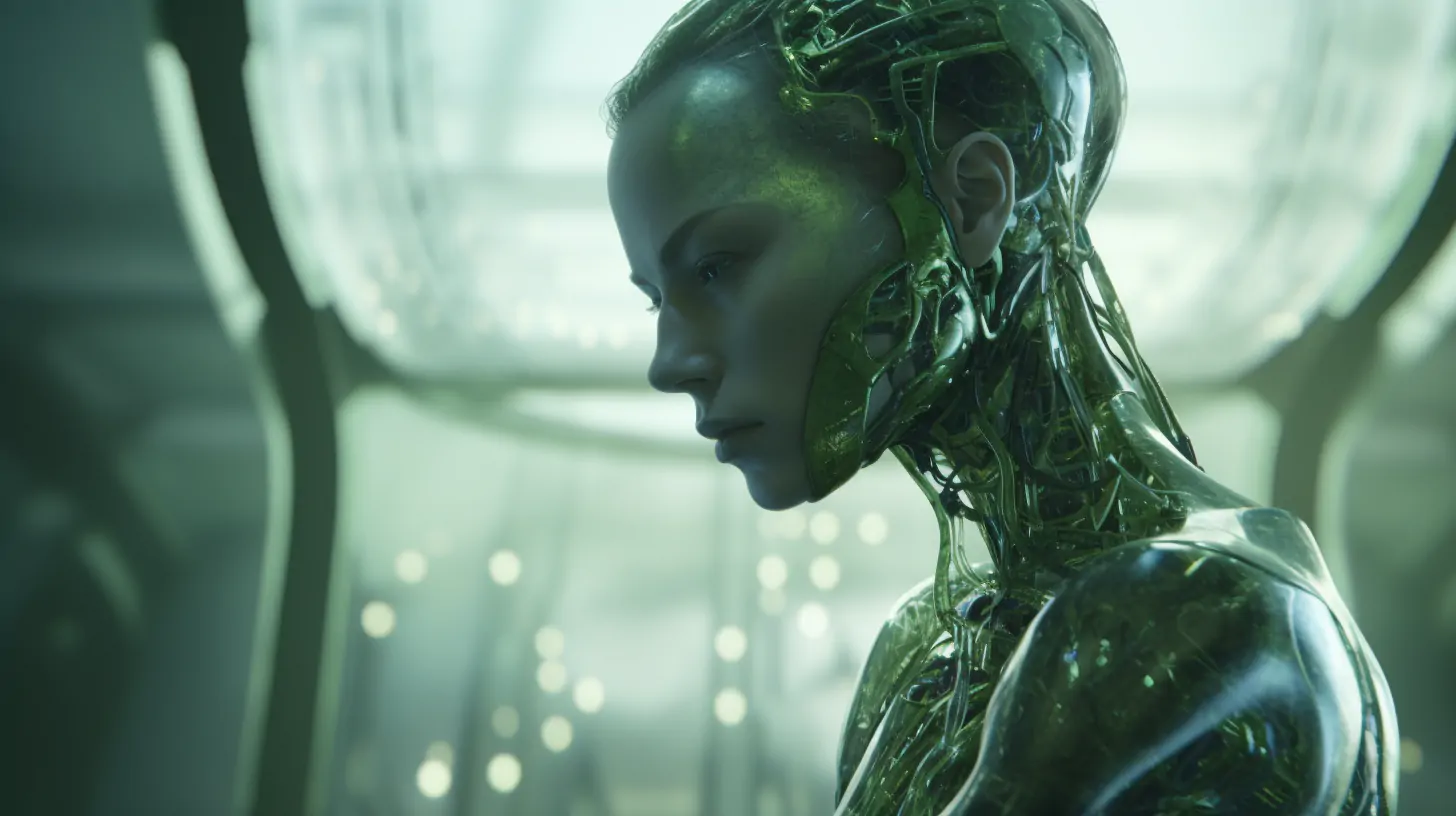The article focuses on the shift toward automation as well as the growth of using artificial intelligence at the workplace. They draw different aspects on how AI is altering the labor market, the necessary competencies for the world of AI today, and the social and moral effect of AI technology.
The article states that the need for flexibility, learning and training consistently and in acquiring knowledge and skills in data proficiency, programming, and cybersecurity as well as understanding the use and legal requirements of AI. It also highlights some issues including the possible effects of loss of jobs, lack of equity in the access of new jobs, violation of privacy and presence of bias in AI systems.
In general, the article implies that with all the benefits that AI provides for the growth of the economy,; new challenges also arise in the form of risks that need to be minimized when it comes to dealing with artificial intelligence both for individuals and companies as well as for the huge number of people and governments that have to make decisions about further investment into the development of such technologies.
Transition to Automation: An Overview
Using the case of future of work, one can identify the trend of automation. This transition also entails employing software, technology, and machines on jobs which earlier required human input.
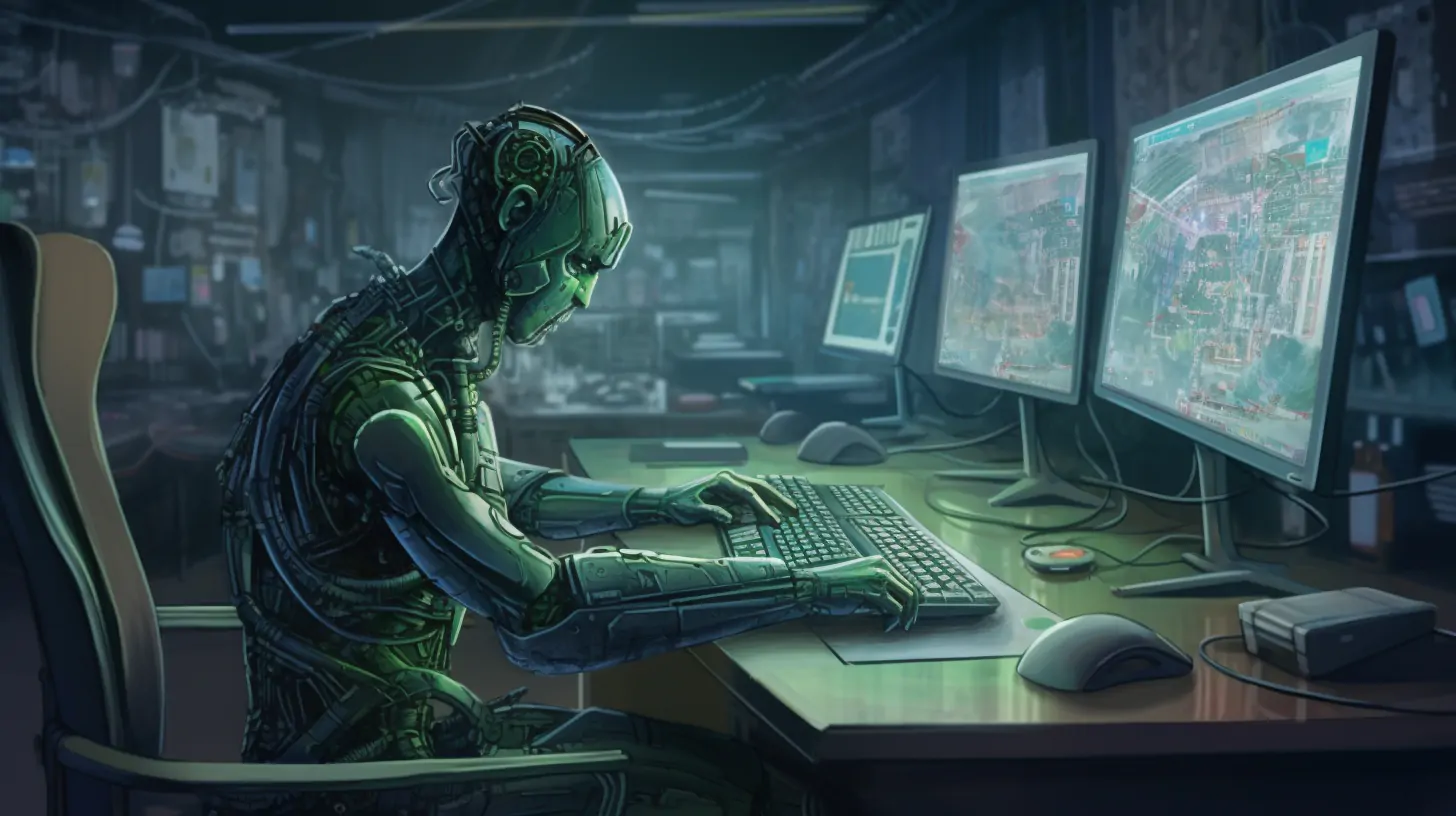
The development of automation has not been a new idea to many in the society today. It is a fact that many industries used to embrace mechanization in a bid to enhance productivity, speed as well as accuracy. But that is not the case now since automation has evolved to mean the exclusion of less frequent and recurrent positions. Modern automation builds on concepts such as inter alia algorithms, machine deep learning, as well as artificial intelligence (AI) to effect sophisticated and self-contained tasks.
The following transition will impact a number of industries some of which are manufacturing retail health care as well as the finance sector. From chatbots to robotic process automated or robots, its now present from the factory line to the business offices.
Different industries have different levels of adoption and this depend on the regulatory systems in the industry as well as the general economy, existing labor market structures, and technology readiness factors. Yet, the main trend is still towards the increase in the pace of automation is still observable.
The drive of wanting a robot is born out of the want for advancement looking for efficiency. It signifies the aim of doing away with mistakes, enhancing production and cutting down on expenses and time with an aim of creating a well ordered working environment. However, this change brings other issues which form part of reality that society must address.

Future work may involve human impression together with a number of automatic processes. For people facing the trend of automation in the new world, it is important to look beyond the fixed concrete, and know the consequences of this change, and how the world of work is likely to be shaped.
How AI is Changing the labor market
It is important to mention that today artificial intelligence (AI) is the main actor influencing the nature of work. AI has left multifaceted impacts on a number of sectors starting with data analysis and including decision-making processes.
First of all, the most traditional and primary purpose of adopting AI was in the routine and cyclic work tasks. Some of the best examples that can be used to explain the first stage include; autoresponses, chatbots, and data entry. On the same note, researchers were also working on advanced AI, where machine learning and complicated algorithms were used to enhance the performance of the undertaking.
Now, other applications of AI are being implemented to diagnose a number of diseases and optimize treatment strategies within the healthcare sector. Some of the applications of the Artificial Intelligence include; financial institutions where they employ the techniques for Credit risk analysis or credit card fraud detection while law firms use it in document authentication. WI regarding to the creative occupations, AI tools support the visual design, writing of texts and composing music.
AI is also taking toll in the traditional methods of staffing by providing new ways of filling jobs. Employment seekers can also find a suitable business within a short time owing to the available candidate screening tools and hiring forecasting software. Moreover, we have to emphasize that AI is not only affecting people’s employment, but it is transforming the very idea of work. There are so many applications encompassing advanced intelligent artificial interfaces that make it possible to work from home.
AI influences work roles and structures not only at the level of tasks and their accomplishment. Hence there are those that have appeared or evolved while others have contracted or diminished in size. For instance, it is possible to talk about the need for specialists such as machine learning engineers, artificial intelligence specialists, data scientists and other related profiles. This also eliminates the need for further and frequent calls to market insurance products or services to the clients as well as entering data manually into computers.
Knowledge of existence of such sciences as Artificial Intelligence, its applicability, and the consequences that accompany it becomes more critical, and in many cases, determines the job opportunities.
Where AI is concerned, there can be no doubt that it has the potential to cause a revolution and the potential is increasing. The society must acknowledge this shift, appreciate its occurrence and make efforts that would guarantee a virile job market in an era when artificial intelligence dominates.
Skills Needed in the Age of AI
The focus shifts with the increasing use of AI systems that assume some of the human ability. The following are some of the changing skill requirements mentioned above. Artificial intelligence is gradually becoming integrated into numerous industries and that has started transforming the requirements of skills in the job market.

First, more and more businesses are looking for AI specialists. This involves information about algorithms construction, data analysis and models of machine learning. These types of knowledge have become important as AI as become integrated into many organizations.
The next catch is information literacy Information literacy is the ability to find, evaluate and use information effectively. Knowledge of data is crucial which includes interpretation and application of data since big data is the basis of most AI systems. All three categories of data structures, preparing or reformulating data, and data visualization belong to this category as well.
Third, there is a constantly growing importance of the cybersecurity knowledge among societies. It has become necessary to safeguard such information and the tools we use from various threats mainly due to the growing implementation of artificial intelligence in different organizations.
However, it should be pointed that as much as these technical skills are quite relevant, it is very harmful to eliminate the creative skills. It means that demand on creativity or critical thinking or a good ability to solve different complex problems will be increased sharply. Since we will always have AI we will need to find solutions for issues that arise from integration of AI, or issues that these systems cannot handle.
Other skills include communication and interpersonal skills Communicating with people is a part of existence and is thus fundamental. The justification often given for human workers is that they are put in front-line, contact, negotiation, persuasion, leadership roles because many core activities are automated by AI systems.
Lastly, flexibility and continuing education are essential Last but not the least Flexibility and continued learning are important. Employees should constantly acquire new skills as the field of AI is rather dynamic here it is necessary to constantly level up your skills.
There is a problem, as the labor market’s claims for employable skills are shifting with the advent of artificial intelligence. To sum this up, these talents can assist us to be relevant and meaningful to a changing job.
Social Implications of AI
AI now presents great social significance, and impacts numerous spheres of life, work, as well as ethics. The idea is that it is necessary to check the changes that have happened with the help of AI in order to avoid emergence of unfair conditions.
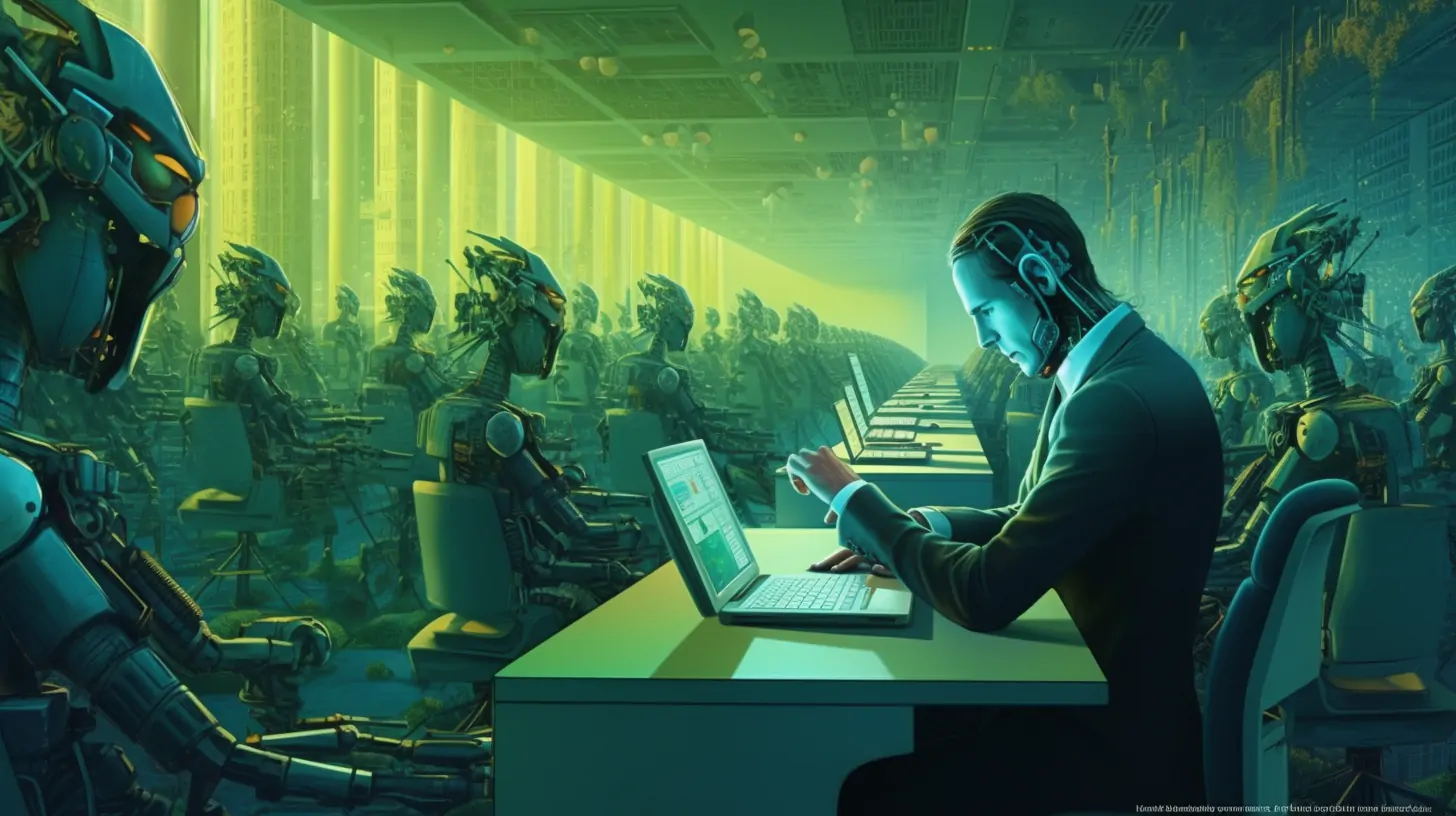
The impact of AI on the labor sector is particularly noticeable. As AI takes over the responsibilities humans have historically taken on, some jobs are becoming obsolete, and others are being created. This change may lead to changes that will require upskilling and retraining efforts.
On inequality there is another issue. AI employs may benefit from AI advancements; the increased distribution of AI technologies might widen the gap in the society. For example, in the case of the advanced AI application in e-commerce, high-income earners, or companies, who can afford the technology will benefit than those who cannot.
AI also affects privacy. AI systems, for instance, are known to call for a lot of data to operate, including data that are personally identifiable. This data if used incorrectly or if the security of the data is breached presents very severe privacy issues.
Bias in artificial intelligence systems is a concern. To train AI System, one uses data, and the AI system will only make the bias in a data set worse. They can have a negative impact on lending or hiring decisions or even law enforcement actions.
It is equally important to admit that AI plays a great role in the dissemination of fake news. AI is capable of generating deepfakes, which are actual, but artificial images or videos or post fake news that may change people’s perception and sharing of information in various platforms.
Discussions concerning responsibility with reference to AI judgments stem from ethical consideration. That means the question often arises of whose fault it is when things go wrong: the designers of the AI, or the users of it? Machine, user or creator? These questions raise questions to some of the social structural belief systems in terms of responsibility.
Last but not the least, AI leads to self reflection regarding the human personality and the mission. What does it mean to have human labour and what is the place of humans in a world where machines can learn and do all the ‘Human-like’ things.
To eliminate the above social implications, there is a need for prevention strategies, ethical practices and legal actions. This demands an integration of various fields to guarantee that AI is for the benefit of the society and does not produce suffering of one segment of the population. This barrier has to be cleared before AI takes over ever aspect of people’s lives.
A Critical Quality in the Age of AI - Adaptability
Both the low-ranking employees and CEOs will have to possess the flexibility as a result of the application of AI. This quality is helpful especially in today’s world where the advancement in technology is on the high rise.

The meaning of adaptability suggest the process of change based on the context. This could be learning on how to work as a team with the AI technologies in the workplace. Or become redundantly inapt for some of your tasks as more and more automation expands the domain of AI systems.
It is important to comprehend how such systems work and how one can engage these systems since such applications are bound to seep into various sectors. It is therefore not necessary for everyone in the society to become a data scientist but understanding basic concepts of AI and related technologies are becoming useful.
The other principle of assessment of adaptation is the desire and the possibilities to learn new skills. Prediction of new jobs and shifts in the tasks complexity of the existing ones are effects of AI.
Amid change, ability also means resilience in its context. The change management of AI throughout the enterprise is not as tasking or unique as people expect but is rather a similar process like most changes. It can be tricky. Challenges may be in the form of unemployment, retraining, or accustoming to the change of process and procedures. Thus, the process of overcoming these challenges, gaining experience and continuing the work should be regarded as an essential part of adaptation.
The secret of flexibility with the help of AI is in the orientation on the creation of a certain mental mode that implies constant training and modification.
This is going to call for a learning organisation, change readiness and passion when the going gets tough. This quality will ensure that people do well in a shifting labor market because with the incorporation of artificial intelligence the way we carry out tasks is evolving.
The Future of the Economy in an AI World
AI itself presents potential for the company’s development and improvement of efficiency; it is also a factor that poses certain challenges that are important to address. Use of AI can help increase productivity that will foster economic growth. AI is the will enhance the usage of resource since it will reduce the number of time used in carrying out repetitive activities. Apart from that, it will enable you to work with massive amounts of data and derive information that will enhance strategic management and decision-making and eventually give better corporate outcomes.
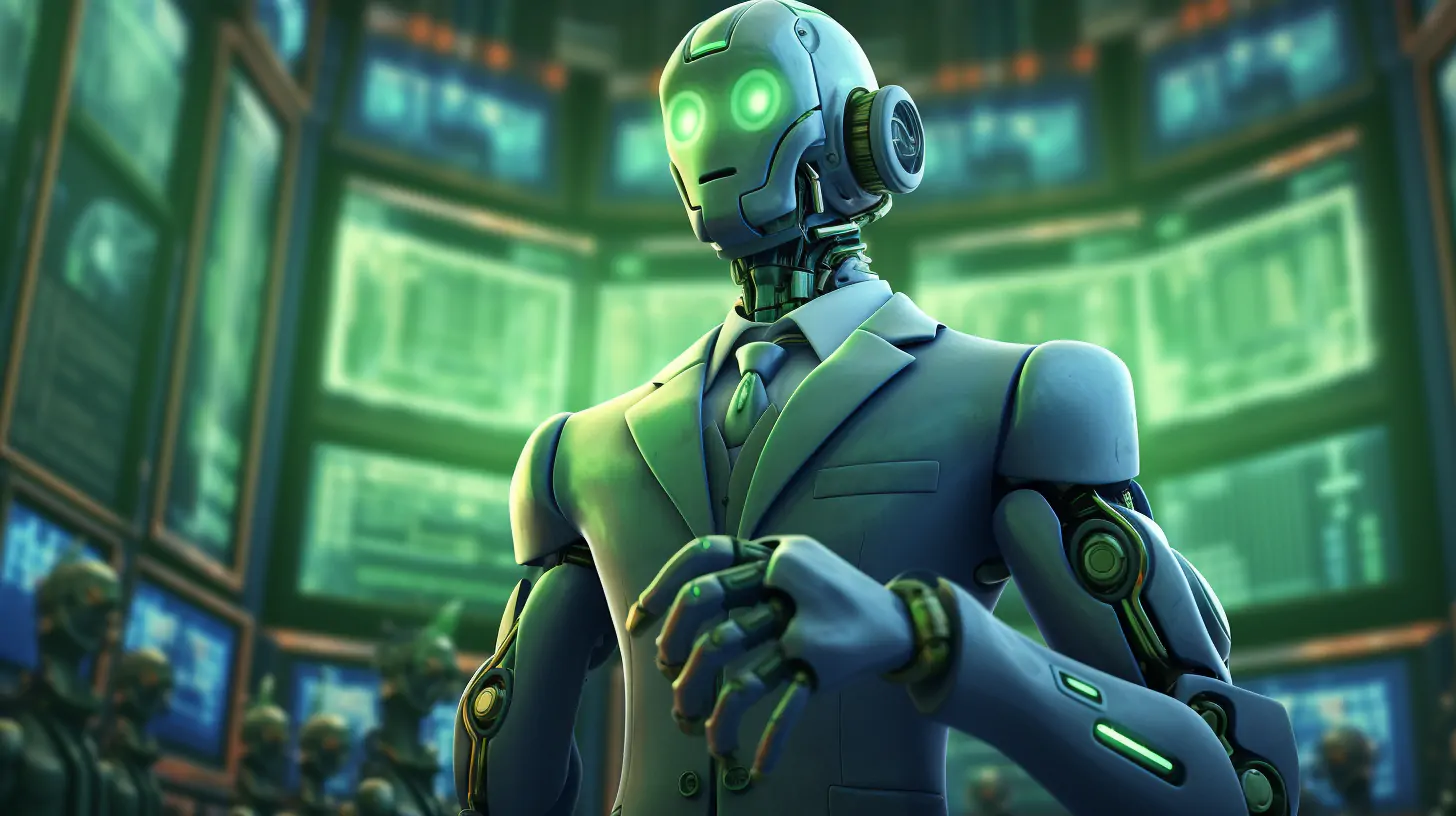
AI can help unlock the potential of imagination as well as generate new economic sectors. The technologies that were the subject of this week’s work, including machine learning, natural language processing, and computer vision, can be the basis of new products, services, and businesses. These, therefore, can lead to growth in the economy.
Another area of insight which can be suggested regarding the economic implications of artificial intelligence is the creation or emergence of new jobs. Some people think that due to the advent of AI, there are jobs that can be done away with; however, new roles are developed by it as well. Information specialists, data scientists, IT specialists, and other related specialists are quite popular, as can be judged by the market.
As for the drawbacks pointed out by AI on the other hand it poses certain complexities that would have an impact of the monetary stability. Consequent effects of automation and elimination of certain jobs entail unemployment of certain workers or less pay earned by workers affected by the changes.
Another issue is social inequity Inequality which refer to ratio of people that has certain level of income relative to the total size of population is another challenge. The social inequality could also be deepened if employees who own or have access to AI related jobs benefits most out of the investment. Likewise, the rich and poor countries’ gap regarding the advancement of AI in their countries could further be stretched.
Last but not the least, there are the risks related to the protection of such systems from attacks or hacking that can lead to issues of an economic nature. The nature of involvement of cybersecurity is not only dependent on technical infrastructure, but is also accompanied with huge monetary investment.
There is much at stake for the economy in an AI world: it is rich with opportunities and challenges. For this reason, politicians, organizations, and individuals that need the information for their advantages must appreciate the implications of big data. The purpose is to establish a healthy economic environment in which AI will make people’s lives better.
What you need to know today to thrive in the age of AI
Adaptive learning and acquisition of right skills play a crucial role to survive or to compete in artificial intelligence (AI) domain. Some of the great areas to focus on are as follows.
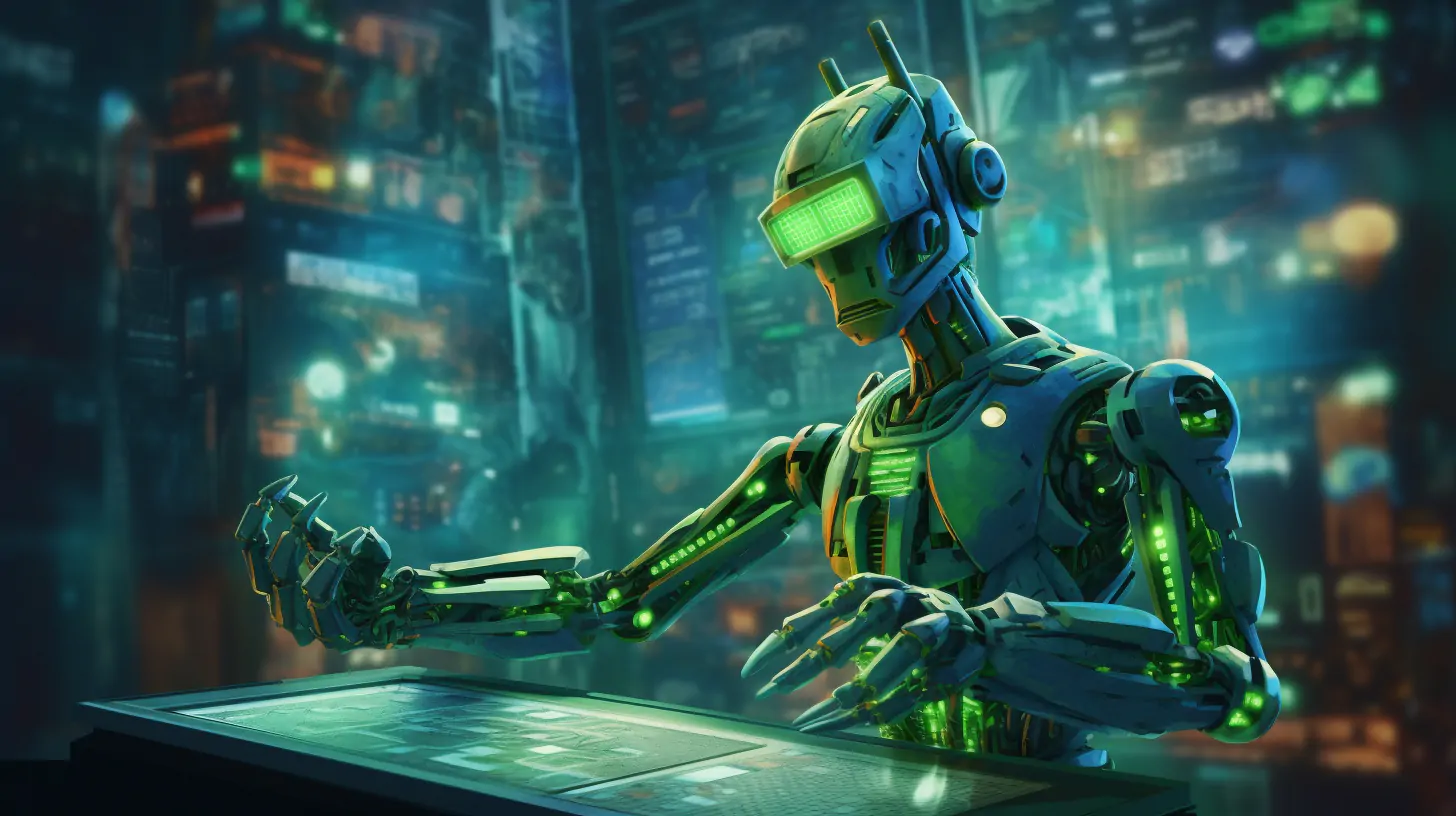
Understanding AI and machine learning. It is important to comprehend what AI is and the technologies it interfaced with including the neural networks and the machine learning. Some of that is knowing how these systems learn, reason and evolve for the better.
Data literacy is crucial for AI. Some of the key competencies that will be vital in the future includes data interpretation, Statistical literacy as well as data visualization.
Programming and AI development. Non-artificial introduction with tools such as programming languages used in AI including; python or R may be of benefit for those with technical disposition, and familiarity with development environments like TensorFlow and PyTorch may be of added advantage.
Information Security. Cybersecurity is essential in today’s world as we increasingly rely on AI and computer systems by building a basic knowledge of cybersecurity concepts.
Ethics of AI: There is need to detailing the ethical usage of this form of artificial intelligence as such systems are being adopted in decision making processes. This includes making sure that the AI systems are explainable as well as should not have any bias in their decision-making process.
Continuous learning and adaptability: It is widely agreed that the concepts of AI are one of the most developing areas of modern technology. There should also be willingness and ability to update knowledge as well as the skills from time to time.
Creativity: There are some things that AI cannot perform to the level that it is required like some human abilities. Some skills, which include problem-solving and decision-making, critical thinking, creativity, leadership, and interpersonal skills, however, still favor people.
Industry Applications of AI: It becomes easier to work around AI or plan for it if you understand different sectors or businesses apply artificial intelligence.
Understanding the regulatory framework. This means that the regulations of the artificial intelligence technologies are dynamic. Owners and managers of the business can react to the legal environment of the employing of the AI through these advances.
The period that we live in is without doubt a complex one which provides certain benefits as well as difficulties. People and organizations can stay current, find the right job and get the most out of artificial intelligence by concentrating on learning in these fields.
Ethical Issues in the Age of AI
In the past and as AI becomes integrated into our daily existence globally and in working environments specifically, this paper identifies several ethical concerns. All these factors should be taken into account both at the stage of designing, construction and implementation of AI systems.
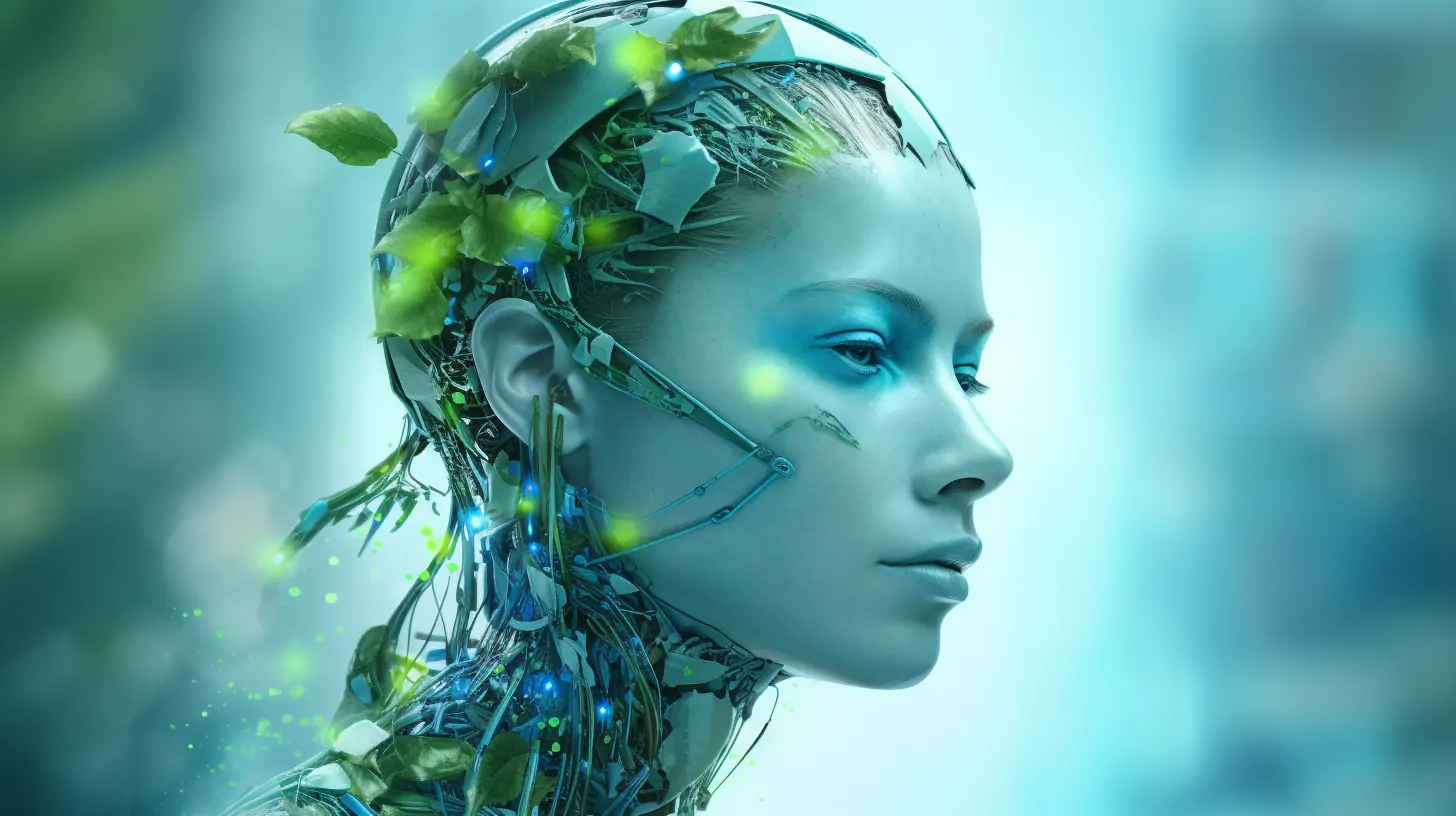
Obviously, transparency is one more ethical topic. It is significant to point out that AI systems are embedded with approaches, which are difficult to reverse engineer. In order to avoid any deception on the part of the AI it needs to take responsibility for the choices it makes.
The other crucial aspect that has to be considered is Fairness. More to the point, AI systems can include bias in their interpretation if the data which feeds them is bias.
The most basic problem, then, is that of avoiding bias in the AI systems themselves.
Privacy is a significant issue as the AI systems work on massive data, especially, personal data. It is therefore important to make sure that this data is protected and processed appropriately.
Another problem is autonomy. As intelligence of systems increases, they may meddle with people’s independence and then make choices on behalf of individuals.
One is the long-term outcomes. This factor is the long-term effects. The future implications of AI have to be addressed to and more specifically how a society might be transformed and whether they may result in some kind of future scenarios such as superintelligent AI that poses a threat to humans.
Dealing with these ethical issues provides for a continuous discussion, inter-and intra-disciplinary involvement, and constant policy-making. The following ethical considerations should help in developing these technologies as well as in their proper application in present day AI age.
FAQ
How can individuals prepare for the changing job market due to AI?The human factors that can be done to ensure preparedness include; The constant process of learning as well as the acquisition of skills in areas such as, data analysis, programming, and AI ethic and also flexibility. Education is also necessary in the sense that one should always be updated with related jobs using Artificial Intelligence in their respective fields.
What are some potential new jobs that may emerge due to AI?Potential new jobs related to AI may be an AI ethicist, an AI trainer, a data scientist, a robotic systems engineer and an AI-assisted healthcare provider. Still, probably with the enhancement of AI, potentially brand new professions will develop, and be distinctively new.
How can companies ensure the ethical and responsible use of AI?The ethical guidelines are that firms can state clear ethical policies, make the decision-making processes of the AI systems fair, review the AI structures’ bias frequently, safeguard privacy, and promote responsibility. Ethics expertise or advice is also required in some form and engaging multicultural and interdisciplinary teams.
What role can governments play in managing the impact of AI on the economy and society?Governments can directly fund research and education in artificial intelligence technologies, fund social support for employees who may lose their jobs due to the new technology, create rules for a proper adoption of the new technology and coordinate relations between business and the government.
How might AI affect income inequality and what can be done to mitigate this?Those who would be in a position to access them would be those at the higher income bracket hence aggravating the income disparity. This affect could be reduced by policies such as Universal Basic Income, progressive taxation, and investments towards growth in education and reskilling.
What are some limitations of current AI systems?Today’s AI is a specialized type, it does not understand simple things like people do, it can contain bias and it is not creative or have emotions. They also demand data and processing power in the form of unusually large quantities.
How can we ensure that AI systems are transparent and explainable?Whether it is by choosing to implement explainable AI techniques in developing the systems, to establishing protocols that demand the documentation of how an AI came to a certain decision, or by having the systems supervised by individuals, they all promote accountability and transparency. It is also necessary to continue research of making AI systems more interpretable.
What are some potential long-term impacts of AI on society and human interaction?In the long term AI is capable to improve the existing work paradigm, extend capabilities of human beings and alter the perception of social relations. Such effects should be predicted and managed to ensure that the positive impacts of AI are actually achieved as they help the entire humanity.
